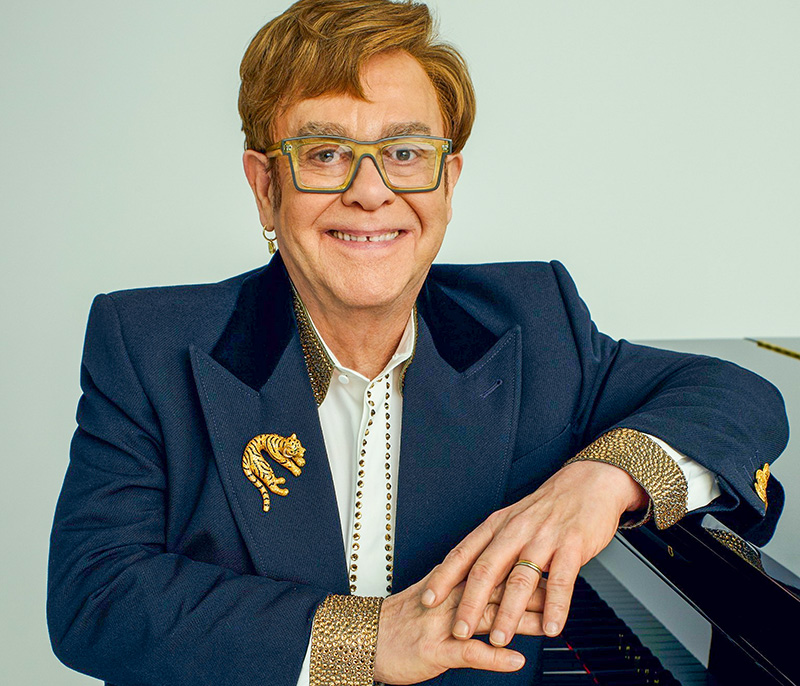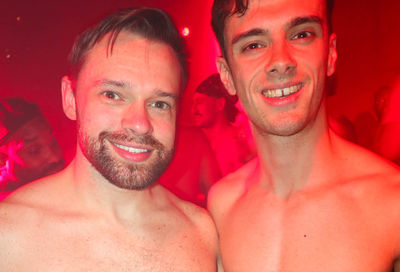United States may cut back on intelligence-sharing with countries that criminalize homosexuality
Acting Director of National Intelligence Richard Grenell says U.S. has an obligation to stand up for "basic human rights"

The Trump administration is considering cutting back on sharing intelligence with countries that criminalize homosexuality in an effort to pressure those countries into changing their laws.
The possibility of using intelligence-sharing as leverage to push countries to amend their laws is being pushed by acting Director of National Intelligence Richard Grenell, the first openly gay cabinet-level official.
Last year, as the U.S. ambassador to Germany, Grenell was tapped to lead a U.S. initiative calling on up to 70 nations — mostly in Africa, the Middle East, and Southeast Asia — to decriminalize homosexuality.
In an interview with the New York Times, Grenell cast the larger fight for decriminalization as a fight for “basic human rights,” and defended the idea of advocating for human rights reforms in the countries with whom the United States partners for security reasons.
“We can’t just simply make the moral argument and expect others to respond in kind because telling others that it’s the right thing to do doesn’t always work,” he said.
But some critics noted that, if adopted, such a stance could threaten national security by alienating allies who have anti-LGBTQ laws, like Egypt, Saudi Arabia, or Malaysia.
Nonetheless, Grenell insisted that the White House was backing his efforts, saying: “We have the president’s total support. This is an American value, and this is United States policy.”
Grenell declined to say whether the Trump administration was considering withholding additional cooperation, or scale back intelligence-sharing with countries that resist entreaties to repeal anti-LGBTQ laws. But he also insisted that there’s nothing wrong or unusual about the United States standing up for its values on the international stage.
“If a country that we worked in as the United States intelligence community was arresting women because of their gender, we would absolutely do something about it,” he said. “Ultimately, the United States is safer when our partners respect basic human rights.”
Related: Richard Grenell tells NBC News why Trump suddenly wants global decriminalization of homosexuality
Grenell has also previously suggested, when he was ambassador to Germany, that foreign aid could be used as an incentive to pressure beneficiaries with laws criminalizing homosexuality to change their laws, Hadi Damien, the founder of Lebanon’s Beirut Pride, told the Times.
“While the U.S., or any other country, cannot influence how other countries process their domestic affairs, the U.S. can push toward change through the voice of its officials and through the implementation of its programs,” Damien said.
Grenell has also been at the forefront of trying to promote acceptance within the wider intelligence community. Last week, he sent a letter to the agencies under his purview, saying that the intelligence community needs to improve how it detects, and responds to, allegations of discrimination and harassment against LGBTQ people.
“I expect every [intelligence community] agency to ensure policies are specific and deliberate in protecting the LGBT workforce,” he wrote. “To drive the right changes, I am directing human resource officers to improve our voluntary collection of sexual orientation and gender identity data so we can better understand the LGBT experience across all stages of recruitment and hiring, as well as career advancement.”
Historically, the U.S. government denied security clearances to LGBTQ people for much of the 20th century until the 1980s, based on the belief that their sexual orientation might make them vulnerable to blackmail, thereby forcing them to give up critical intelligence or secret under duress.
Grenell said his office is reviewing the security clearance process and the kinds of questions that contractors and FBI agents were asking during background checks.
He said he wanted to ensure that the process did not lead to the unintentional “outing” of LGBTQ intelligence officials, although he also implied that being secretive about one’s personal life was not ideal.
“You have to be sensitive to the individual’s personal situation, but the LGBTQ community also has to remember authenticity in the [intelligence community] is fundamental to doing national security and intelligence jobs,” he said. “You don’t ever want to be in a position of hiding anything. That is how you can be compromised or blackmailed. So it is really important to be authentic, but to be authentic, people need to feel comfortable and safe.”
Support Metro Weekly’s Journalism
These are challenging times for news organizations. And yet it’s crucial we stay active and provide vital resources and information to both our local readers and the world. So won’t you please take a moment and consider supporting Metro Weekly with a membership? For as little as $5 a month, you can help ensure Metro Weekly magazine and MetroWeekly.com remain free, viable resources as we provide the best, most diverse, culturally-resonant LGBTQ coverage in both the D.C. region and around the world. Memberships come with exclusive perks and discounts, your own personal digital delivery of each week’s magazine (and an archive), access to our Member's Lounge when it launches this fall, and exclusive members-only items like Metro Weekly Membership Mugs and Tote Bags! Check out all our membership levels here and please join us today!























You must be logged in to post a comment.